The Fiction of Glenn Quigley
Glenn Quigley’s books are bursting with Bears.
Usually the kind of spicy, seafaring Bears who battle stormy weather and raging seas. The kind of Bears who brace themselves against the elements on secluded islands a thousand miles from the mundanity of the mainland.
In stark contrast, it’s actually a rather mild winter’s evening when I meet up with the wordsmith himself, in the comfort of a hotel bar in Stratford, to talk about sexy sea dogs and their stories of ursine adventure. We have a lot to talk about, but my first and most obvious question is:
Why make Bears the focal point?
“Well they say write what you know,” Glenn chuckles. “It was never in doubt that my stories were going to be about Bears. If there’s a Bear character in a film or TV show, I’m drawn to them. And as my friend, J. P. Jackson, says: We deserve to see ourselves as the heroes.”
And it’s not just what Glenn knows. He writes what he loves. Was he ever tempted to use a pseudonym?
“There was never any question of writing under a pen name. My mother has had a dream since I was a small boy of a book with my name on the cover. And I’m happy to do it. She was over the moon when I first got published. My dad as well. My dad has basically sold my books when they’re away on holiday together – gone up to total strangers and said ‘read my sons book’. My parents are my biggest supporters.”
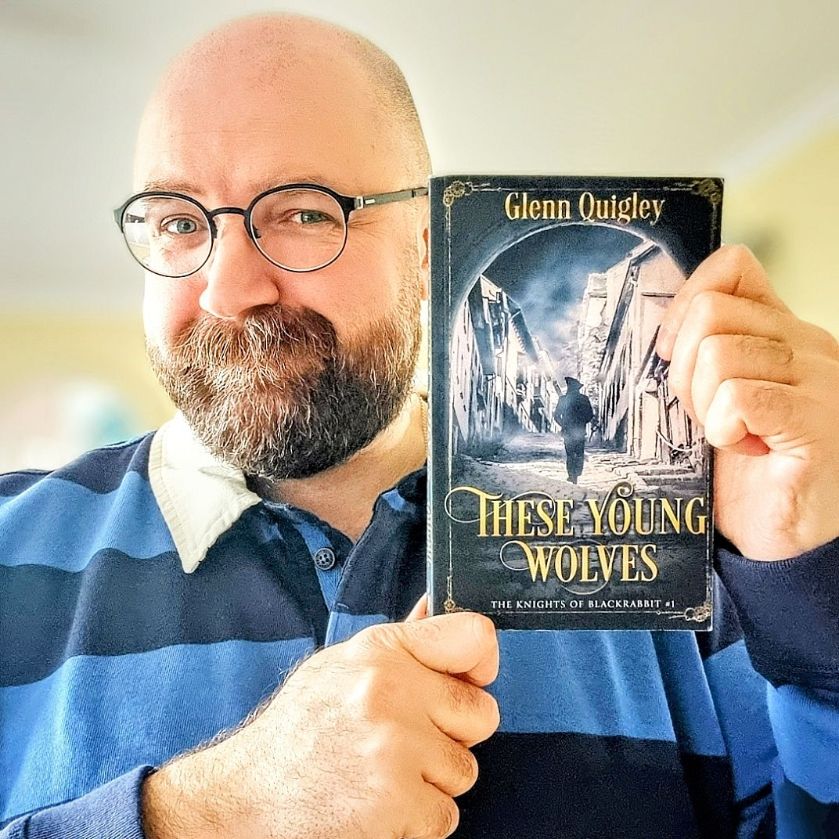
So does Glenn base any of his characters on famous Bears? Before he goes into detail, he flashes a cheeky smile…
“The character of Captain James Godgrave, in my book These Young Wolves, is based explicitly on the actor James Robertson Justice. He was big in the 50s and 60s. And the innkeeper of the Moth & Moon is a man named George Reed. Physically and in terms of temperament, he’s based on television presenter and entomologist, George McGavin. George himself knows. He said he hopes nothing bad happens to the character. I do a series on my website and in my newsletter, called Muster Roll, which consists of character portraits and short biographies. Those are often based on real people.”
Let’s dig a little deeper. Another recurring theme in Glenn’s books and his artwork is lighthouses. Is there any Freudian symbolism at play?
“I don’t know,” Glenn confesses. “I think everybody my age has a romantic notion about lighthouses because of the television programme Round The Twist. But I’ve read books about what it was actually like and it’s a million miles away – quite lonely, quite blokey and not that romantic. But I love a story that the characters physically can’t escape from. They’re stuck together in one place – a haunted house story, a murder story. I’ve only set two stories in lighthouses directly, but they’re always there in the background. They’re just so evocative.”
It’s probably fair to say that sailors and pirates loom large in your work. What historical research have you had to do, to wrestle those characters onto the pages?
“I’ve read a lot of books about sailing in that era, but I’m much more of a visual learner.
Historically accurate movies and documentaries are more likely to have an impact on me – which sounds like a silly thing for a writer to say, but that’s just how I learn. If I turn on the TV and there’s a documentary about a sailing ship, I’m watching it. And if, for example, a character is getting dressed, well then how many buttons do they have? And laces. And do they have knots?
I’ve gone down many a rabbit hole, just to end up writing one sentence that effectively says: He put his shoes on.”
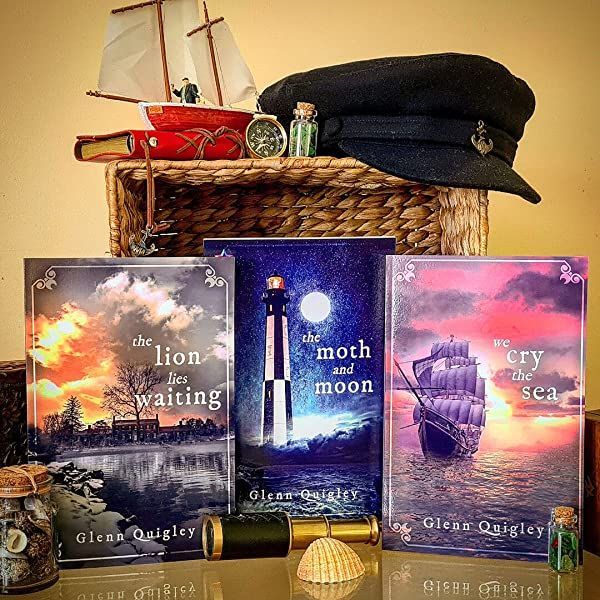
With the sea as a backdrop to so much of your work, have you drawn upon other writers famed for their nautical penmanship – such as Herman Melville or Ernest Hemingway?
“Not as much as you might think. I’m afraid of being too influenced by another writer and thinking that’s the way it has to be done. I don’t want to be a cover band. I think it’s more honest that way.
Occasionally, in a first draft, I’ll spot a line and think that definitely doesn’t sound like me. It sticks out like a sore thumb and needs to be reworked. Sometimes you can go too far with a lyrical flourish and an editor will say – Really?
But you have to have fun with it. And the writing can’t just be there to get me from A to B. Whether you’re amused by it or it makes you tearful, you have to feel something. And if I feel it, then hopefully somebody else will. ”
However, as we discuss the authors we admire, Glenn opens up about the joy of reading.
“I tend to read classics more than contemporary stuff. And there might be a turn of phrase that makes me think – God, that’s beautiful!” Glenn effuses.
“I only recently discovered Virginia Woolf, because of ‘To The Lighthouse’. I read that book and it was like something clicked in my head. And people say nothing happens, but actually everything happens. It’s such a beautifully written novel. You luxuriate in it. And I’m glad I didn’t discover her work before I started writing because I would have found it intimidating.
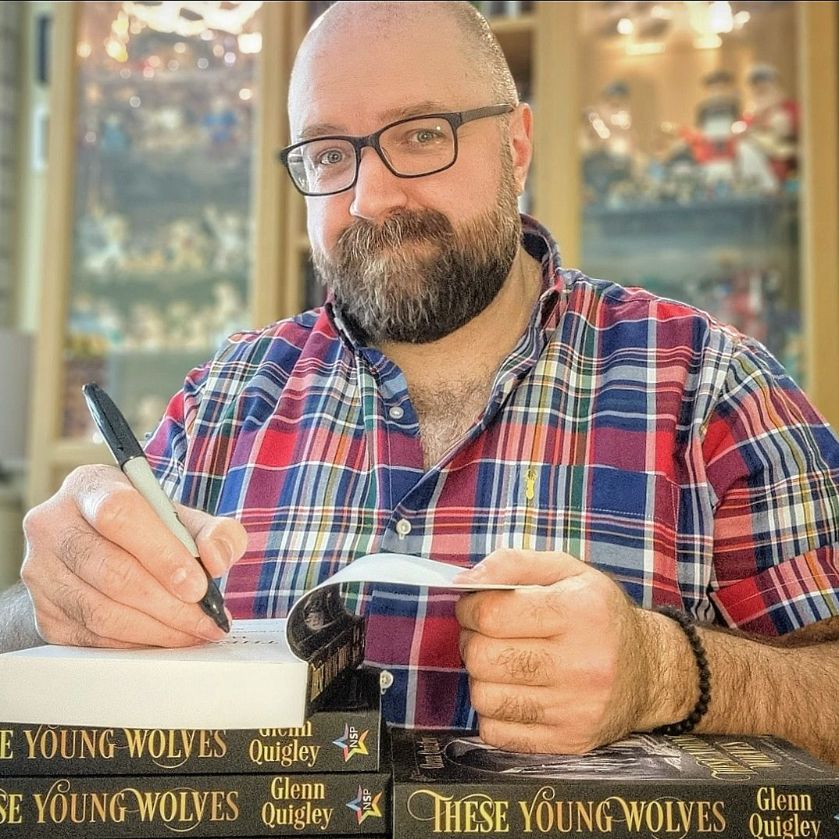
In 2019 and 2021, you were Runner Up for the Rainbow Awards’ Best Gay Book. What did that feel like and did it change anything for you?
“It changed how I saw my own writing. It was validation from people I didn’t know. Like a blind taste test. Someone thought something I made was worthy.
And suddenly my books were being spoken of in the same breath as books from completely different genres by completely different authors. So people who might otherwise never have encountered me picked up the book. When I started writing, I had no idea about the publishing world. I had no idea that some people read books wanting a particular trope, a particular type of protagonist, setting and mood. It’s a laser focus on that specific niche. And that’s fine. But I had no idea these very specific channels existed.”
In writing the books you have, do you feel you’ve carved out one of those channels?
“I think so. If you ask me to recommend another book with a gay Bear protagonist in a historical setting with a heavily nautical influence, I couldn’t tell you. I’ve certainly never heard of them. So my niche is definitely niche. But the reality of the social aspect of piracy, for example, is that it was quite queer.
In my books, I sidestepped some predictable divides because there’s no religion. Men and women are treated equally. No-one ever says ‘I can’t believe that person’s gay’. I already get that in real life. I’d rather create some fantasy. I’ve just moved past it.”
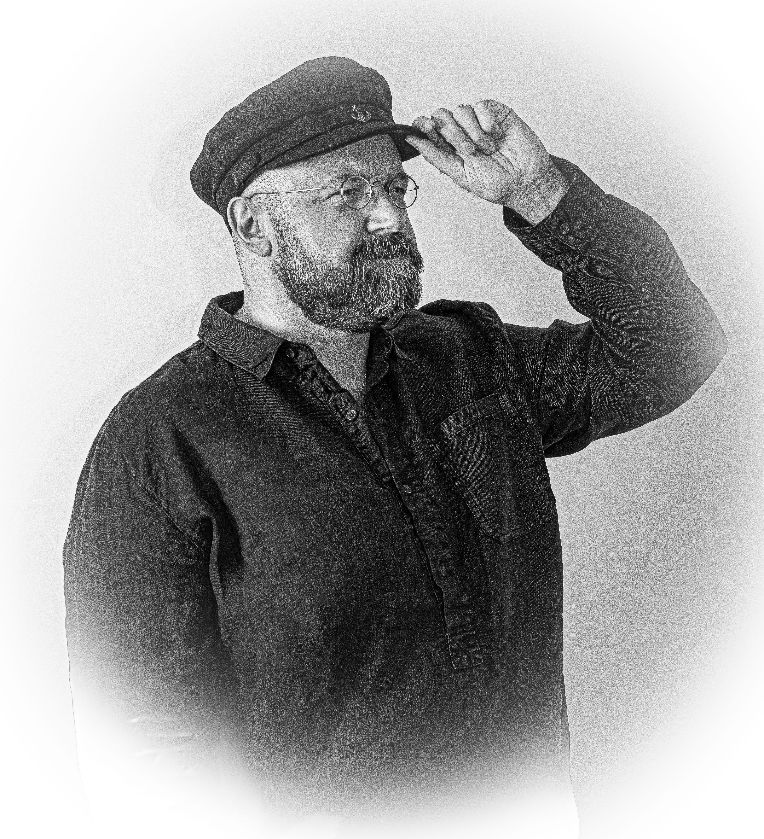

You’ve also written several stories that are a departure from your maritime tales. What inspired Use As Wallpaper?
“I watched a documentary about Georgian choirs and there was one very attractive man in it. And my mind ran away with me. So I wrote a story about a journalist who travels to Georgia and it becomes a cute, little romance. I’d never written a short story before. And I’d never written a contemporary story. And I liked it, so I sent it to my publisher, NineStar Press, and they liked it too. It was another feather in my cap.”
And The Great Santa Showdown?
“I really, really like Hallmark Christmas films and the Great Santa Showdown is one hundred percent a Hallmark Christmas film – it just happens to be a gay, interracial, over 50s, daddy bear, cosy Christmas romance. And why not?
The two main characters are based on the actors Gregory A. Thompson and John B. Lowe, both of whom I’ve contacted and said ‘by the way I love your work and I happen to have written this story’, and we’re still in contact. Both lovely, lovely men. Both straight, but they don’t mind that I’ve written this gay story about them. They often play Santa Clauses in these films and I thought it would be nice, for once, to have Santa be the main character in a bloody Christmas film!
There’s snow and Christmas trees and cinnamon and hot chocolate. And of course there has to be a kiss.
It was also a chance to be included in another market and it sold well enough for JMS Books to include it in their yearly anthology of 2023 Top Ten Gay Romance”.
The BIG NEWS! You have two new books out.
“Yes! On February 20th, The Star We Sail By came out. It’s book two in the Knights of Blackrabbit series, although this is a standalone story, so you don’t have to have read any of the previous books.
Felix Diamond is a young sailor who receives a mysterious letter from his uncle, begging him to come home. When gets there, he discovers his uncle is missing. He seeks help from the town watch, but that’s Vince Knight, a former crime lord and a man Felix trusts maybe even less than his own estranged family.
It’s a fast paced book with short chapters. And it’s a mystery story.”
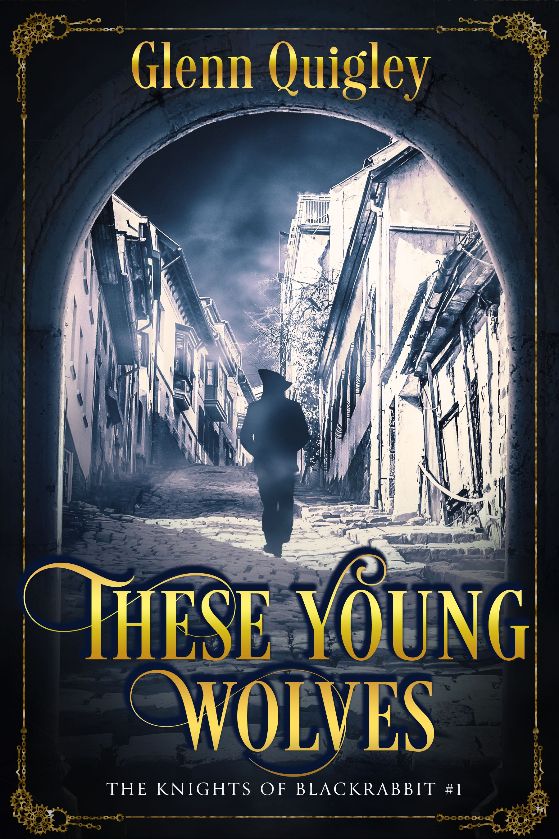
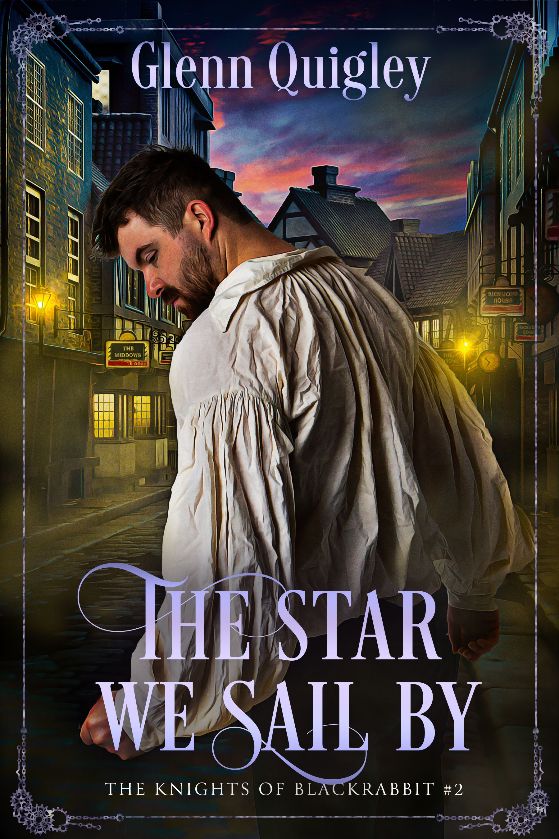
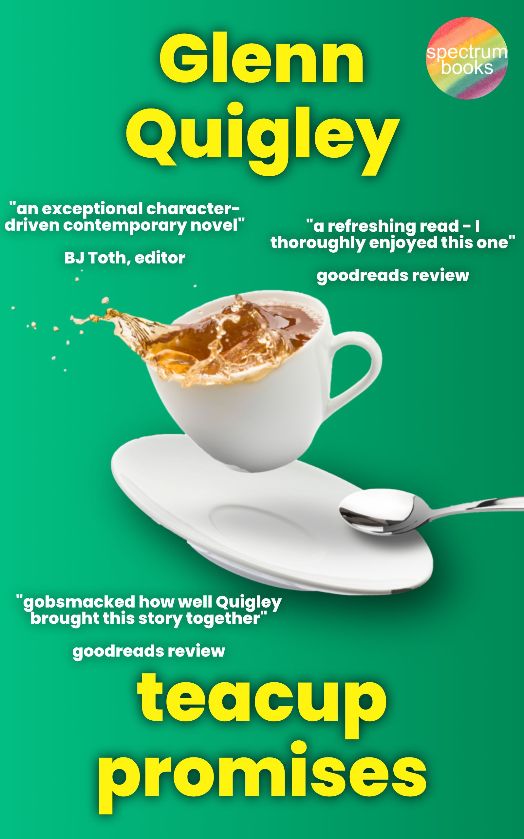
And the second book?
“The second book is Teacup Promises, out on March 16th. It’s from Spectrum, my third publisher. It’s a contemporary fiction and the story unfolds in six parts.
Andrew attends a 30th wedding anniversary party thrown by Jack, his friend and employer, and during the event he asks Steven, Jack and his wife, Harriet, to gather in a room upstairs. There he reveals that Steven and Harriet have been having an affair. But then Harriet reveals that she knows Jack and Andrew have been having an affair too. The rest of the story jumps back in time so that we gradually find out how these four people arrive at this point. And it challenges everything you thought you knew about the situation.
With Teacup Promises, I’m hoping to reach a different audience. Andrew still identifies as a Bear and is part of our community, but this one is for the people who don’t read historical fiction of any kind. And it’s a chance for people who already read my work to see what I can do in other genres as well.”
You can discover more aboutGlenn’s work at glennquigley.com
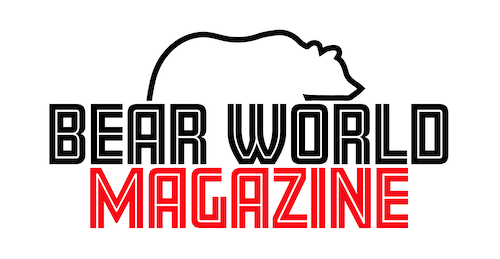














Thanks very much for featuring me, and special thanks to Phil!
Glenn Quigley. Hot Bear indeed!